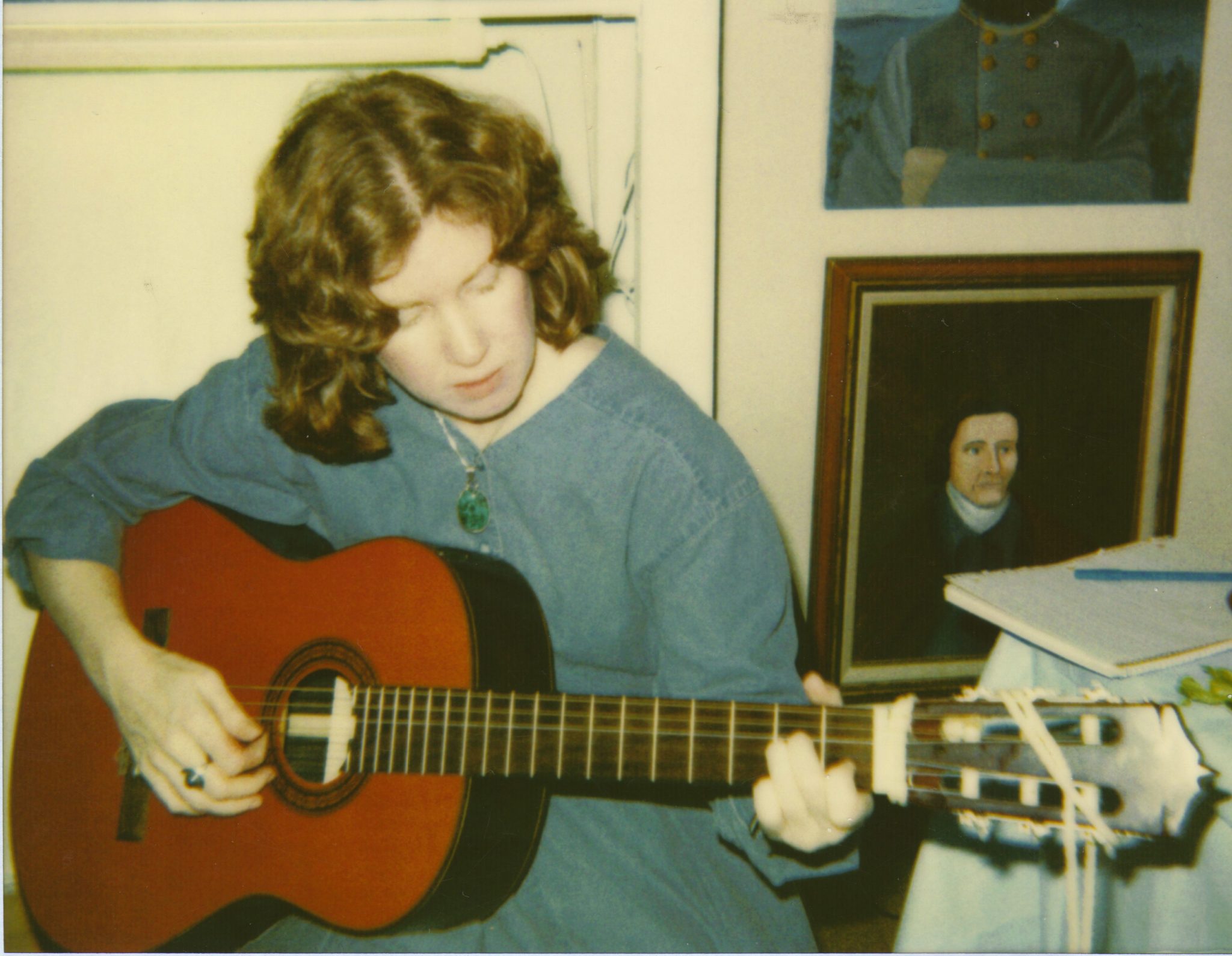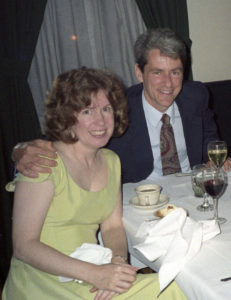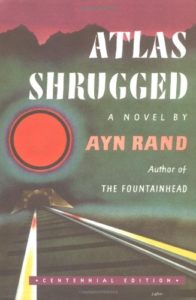Translating deep thinking into common sense
I was a Hippie. Then I Encountered Ayn Rand …

By Brishon Martin
December 16, 2017
SUBSCRIBE TO SAVVY STREET (It's Free)
This interview is about the power of philosophy to turn people’s lives around. Molly Sechrest is one such person—in the Sixties a young “hippie” by self admission, she was, nonetheless entranced by the assertive, and properly feminist, view of life that Ayn Rand put forward in her fiction.
The Savvy Street’s Brishon Marie Martin (BMM) caught up with Molly Sechrest (MS) about her long journey inside the world of Objectivism.
BMM: How were you introduced to the work of Ayn Rand?
In 1973, I was a left-wing hippie living in San Francisco’s Haight-Ashbury district, the birthplace of the 1960s counterculture movement, when a friend gave me a copy of Atlas Shrugged.
MS: In 1973, I was a left-wing hippie living in San Francisco’s Haight-Ashbury district, the birthplace of the 1960s counterculture movement, when a friend gave me a copy of Atlas Shrugged. According to the value hierarchy of the Left, I belonged to both the oppressor and oppressed classes. Thus, as a woman, I was due moral credit, while as a middleclass, white American, I was a victimizer who should feel guilty and do penance. That was the Old Left and it was—and still is—alive and kicking. As for the New Left, I was supposed to live in the “now,” be guided by instinct and group feeling, and eschew reason. As I began to peer into my forbidden future, however, I was horrified. What would become of me? Encountering Rand provided a revolutionary new vision of the world and what it means to be a human being. I have written about this encounter in “Atlas Shrugged in the Haight-Ashbury, A Memoir.”
BMM: What were the aspects of Rand’s writing that most attracted you to her philosophy and/or her stories?
It was the clarity and depth of Rand’s ideas and her moral self-confidence that attracted me.
MS: Although I was transfixed through the entirety of Atlas Shrugged, there were three scenes I recall having a big impact. One was the scene at the beginning of the book when the train stops, and Dagny tells the railroad worker to proceed against the red light. The depiction of a woman confident in her own judgment was extraordinary to me and inspiring. Second was the scene much later in the book when Dagny encounters the tramp who tells the story of the 20th Century Motor Company. I saw this as Rand’s refutation of Karl Marx. I had been steeped in left-wing ideology and this helped concretize its disastrous implications. The third scene was Galt’s speech. I felt exhilarated at encountering a systematic set of ideas that affirmed human efficacy and the possibility for a benevolent social system.
But overall, it was the clarity and depth of Rand’s ideas and her moral self-confidence that attracted me.
BMM: What was the reason you got involved with and supported what went on to be called “Open Objectivism”?
MS: There are two closely related reasons.
 The first reason was the cult-like atmosphere of the Objectivist movement. I encountered this in 1981 when I moved to New York and got to know members of Rand’s inner circle. Rand had become obsessed with loyalty and at times displayed a hair-trigger temper when people disagreed with her. I think this encouraged her acolytes to prove their moral worth by condemning those who didn’t toe the ideological line.
The first reason was the cult-like atmosphere of the Objectivist movement. I encountered this in 1981 when I moved to New York and got to know members of Rand’s inner circle. Rand had become obsessed with loyalty and at times displayed a hair-trigger temper when people disagreed with her. I think this encouraged her acolytes to prove their moral worth by condemning those who didn’t toe the ideological line.
Rand’s behavior, was, if not pardonable, at least understandable, given the hostility and unfair treatment she received from leading intellectuals such as Whittaker Chambers. See his 1957 review of Atlas Shrugged, “Big Sister is Watching You,” published in “National Review.”
The first reason was the cult-like atmosphere of the Objectivist movement. I encountered this in 1981 when I moved to New York and got to know members of Rand’s inner circle.
Let me clarify my position. Ayn Rand was a world class thinker whose accomplishments in the realms of metaphysics, epistemology, ethics, politics, and aesthetics place her among the towering intellects of world history. Her peers are Plato, Aristotle, Locke, and Spinoza, not Whittaker Chambers, William F. Buckley, Herbert Marcuse, or any of her contemporaries. In addition, Ayn Rand, was unquestionably a great moral heroine, as is well documented in the various biographies of her. She grew up in one of the world’s most repressive regimes, Communist Russia, escaped to New York, taught herself English and went on to author one of the 20th century America’s most popular novels of ideas. As if that wasn’t enough, she founded the ground-breaking philosophy she named Objectivism. She achieved these feats in a cultural milieu of complete antipathy and contempt for everything she valued and stood for.
Nonetheless, she became her own worst enemy with respect to the spread of Objectivism. In her dauntless manner, she seemed at times indistinguishable from the parody that enemies made of her. I think Rand felt a desperate need to be appreciated and, of course, she should have been appreciated given her momentous achievements.
After Rand’s death, her legal heir, Leonard Peikoff, put her on a pedestal from which neither she, nor her ideas could be questioned. Whether from misguided loyalty or the mistaken belief that she was morally perfect, Peikoff, and his circle, began emulating Rand’s worst behavior, namely, and as I have mentioned, demands for personal loyalty and ideological conformity.
Something needed to be done to separate Rand’s ideas from the cult that had developed around Rand, the person.
Something needed to be done to separate Rand’s ideas from the cult that had developed around Rand, the person. David Kelley, an up and coming Objectivist philosopher and relative outsider to Rand’s inner circle, took on the challenge. In one of history’s ironic twists, however, the event triggering his stepping into the limelight was his ouster from the Objectivist movement. Or rather, it was Leonard Peikoff’s attempt to boot him out.
Which gets us to my second reason for supporting Kelley: the unfair treatment he received from Leonard Peikoff, Peter Schwartz, and other spokespersons for Objectivism.
I was there that December night in New York City in 1988 when David Kelley spoke to a small Libertarian group. Kelley gave an excellent defense of Objectivist fundamentals arguing why a person who cares about political freedom should embrace Objectivism.
For this, David Kelley was condemned at the highest decibels and from every mountain peak in the “official” Objectivist landscape. People were made to sign loyalty oaths in favor of Peikoff and against Kelley. It was altogether a grotesque spectacle of everything Objectivism should not be party to.
David saved the Objectivist Movement from this tragic and ridiculous predicament. I, as well as many other people who loved Ayn Rand’s ideas, are immensely grateful.
BMM: Now after 27 years of an open approach to Objectivism, what do you think of the results, i.e., academic or social achievements along any dimension?
MS: I was involved in the founding of The Atlas Society, originally named The Institute for Objectivist Studies, and helped plan the opening event, a gala in mid-town Manhattan, March 1990. At that event, in addition to David Kelley’s speech, George Walsh gave his famous “Homeless Objectivists” speech in which he celebrated the new organization as a home for those who had wandered away from organized Objectivism due to its unhealthy atmosphere: the excessive moralizing, competitive one-up-man-shipping, and stultifying conformity.
David’s new organization became a place where scholars, artists, and ordinary people who loved Ayn Rand’s philosophy could exchange ideas, create new applications and extensions, and socialize in a congenial setting. The concrete results were books of significant scholarship (e.g., Stephen Hicks’ Explaining Postmodernism), friendships, marriages, and lots of good times.
David recently answered a question summarizing the accomplishments of TAS under his leadership. The list is impressive. Early on, one of the things that struck me was David’s bridge-building to fellow travelers among classical liberals and libertarians. People such as Charles Murray, and if I’m not mistaken, Alan Kors, were two, amongst many, to whom he reached out.
I think what David Kelley accomplished is a feat for all time. He paved the way for the adoption of Objectivism, whether as a personal philosophy or an object of scholarly research, to take place in a benevolent environment where thinking for oneself and creativity are welcome.
BMM: Was the reintroduction of Nathaniel Branden to adherents of the open approach to Objectivism a major problem for you?
MS: Not at all. I think Nathaniel Branden has contributed a great deal to Objectivism and to ideas in general. I think the main criticism that still holds is that he was inordinately narcissistic. I am no psychologist; I am just using this term to generalize about some of Branden’s not-so-nice behaviors such as blaming others for his shortcomings, manipulating people, even lying, although the latter, was perhaps, under duress.
But in addition to his more serious contributions to psychology, I was grateful that decades after his split with Rand, Branden wrote insightfully about some of the psychological problems he observed in her followers that arose from Rand’s own tendencies such as the negative attitude toward emotions.
BMM: Are you still an Objectivist?
MS: Most definitely, yes.
BMM: Would you say you found happiness in your life through Objectivism?
MS: Objectivism set me on a course of personal empowerment, psychological health, financial well-being, interpersonal fulfillment, and creativity.
 Over the years, I have been guided by an adage that I attributed to Rand but have not been able to locate in her writings, so it might be my own summary: “if happiness is possible, reason is the means to achieve it.”
Over the years, I have been guided by an adage that I attributed to Rand but have not been able to locate in her writings, so it might be my own summary: “if happiness is possible, reason is the means to achieve it.”
Nonetheless, life—and happiness—are not easy. I have stumbled a lot, made mistakes, continue to make them, and continue to learn from them. But to this day, I thank my lucky stars that an angel in Haight-Ashbury handed me “Atlas Shrugged.”
As a youngster, I was both blessed and burdened by being philosophically oriented. In grade school, I remember trying to address the question, what does it mean to think? I loved mathematics so that was my model. I came up with the idea that it had something to do with understanding the abstract relations among things. But in junior high school, I started reading intellectual material that was largely existentialist and left-leaning.
The outcome was my trajectory into Haight-Ashbury. The added upshot was that when in 1973, I encountered Galt’s speech and Rand’s philosophical writings, I entered Nirvana. For one year, my “high” did not abate and it was a time during which I assumed the rest of the world would soon embrace Objectivism.
Objectivism set me on a course of personal empowerment, psychological health, financial well-being, interpersonal fulfillment, and creativity.
Eventually, I came to understand that most people are not philosophical. I guess until a lot more artistic and practical material is developed showing what it means to live by Objectivism, few people will follow this philosophy. Consequently, it can be lonely. You often feel alienated from the surrounding culture. I try to remember that inasmuch as people achieve success at anything, they are guided by the idea of valuing reason and objectivity. Thus, it is possible to find common values with people who live their day-to-day lives as if they respect reason and the right to “life, liberty, and the pursuit of happiness,” but whose explicit views are quite antithetical to this.
 From the standpoint of Objectivism, it is easy to see how people trip themselves up guided by collectivism, altruism, and mysticism. It is less easy to see why not all Objectivists are happy. Objectivism is not a silver bullet and there are many ways to fall down. Leonard Peikoff to his credit (in his earlier days), Nathaniel Branden, and David Kelley have each addressed some of the problems Objectivists encounter. I would like to address this subject more at a future time.
From the standpoint of Objectivism, it is easy to see how people trip themselves up guided by collectivism, altruism, and mysticism. It is less easy to see why not all Objectivists are happy. Objectivism is not a silver bullet and there are many ways to fall down. Leonard Peikoff to his credit (in his earlier days), Nathaniel Branden, and David Kelley have each addressed some of the problems Objectivists encounter. I would like to address this subject more at a future time.
BMM: Is there anything else you’d like to discuss?
MS: One of these days I will write about my evenings with Ayn Rand in her 34th Street Manhattan apartment. But that’s a different story.
BMM: Thank you so much for your time, Ms. Sechrest. We wish you continuing happiness and fulfilment.
MS: Thank you.
This interview benefited from inputs from and edits by Vinay Kolhatkar and Donna Paris.








Excellent interview! I am glad the angel gave you Atlas Shrugged in the 1970s because your advice to read Atlas Shrugged in 2008 saved me from becoming a hippie as well!
Thanks so much, Demelza! So nicely put–you do have a way with words.
Thanks Molly, this was lovely to read.
Iris, thank you so much. I’m glad you enjoyed it. I know you have traveled a lot of similar ground.
Yes, I lived though a lot of “kinds” of Objectivism, too. But I was lucky to be born to parents who thought like Objectivists so I grew up in an Objectivist home…it was like living in The Valley. I didn’t understand why the rest of the world didn’t match. Our lives made sense, not much else did, till I read Rand at 18. I was always looking at Objectivism to see how well it continued the work my parents had begun.
For me, this is a gripping interview of one amazing woman conducted by another. I’m fortunate to know and admire you both.
I won’t put either of you on a pedestal that would treat either of you as deified, or as otherwise other-than human.
But I will gladly put you both on pedestals so I can look up to you with profound respect and admiration.
Thank you both for being your unique selves.
Thank you.